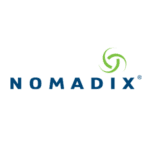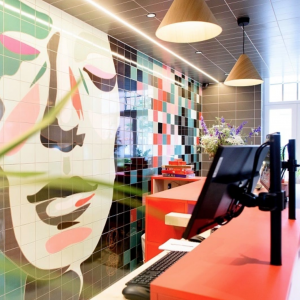 As more travelers have become aware of sustainability and its benefits, many industries including travel, hotels, airlines, transportation, retail, etc tend to modify their products to be sustainable. However, not all companies truly focus on sustainability as a measure to improve the life of humanity or the environment, but rather as a marketing tool. This article portrays a range of well-researched arguments and insights with an emphasis on travel and tourism industry sustainability and how its shapes the future.
As more travelers have become aware of sustainability and its benefits, many industries including travel, hotels, airlines, transportation, retail, etc tend to modify their products to be sustainable. However, not all companies truly focus on sustainability as a measure to improve the life of humanity or the environment, but rather as a marketing tool. This article portrays a range of well-researched arguments and insights with an emphasis on travel and tourism industry sustainability and how its shapes the future.
Annually, $218 billion of food is wasted in the United States. That represents roughly 1,250 calories per person, per day. Restaurants play a large role here. In 2022, many entrepreneurs have become creative in ways to save the wastage of food by donating it to non-profit organizations, introduced modern technologies to control waste, etc. The Sustainable Restaurant Association (SRA) is widely seen as the leading voice in restaurant sustainability practices.
In America, for example, the hotel industry annually produces 13.6 million tons of waste per year that includes soaps, detergents, plastic bottles and cups, etc. Having this problem, many countries have come up with recycling measures in place where hotels such as Marriott International, Accor, Hilton, IHG etc are aware and adhering to recycling procedures.
Significantly, hotels have started significant measures to build sustainable buildings and working on making current hotels sustainable. Hence, marketing campaigns and programs such as zero waste, net zero by 2050 concepts have been introduced by many hotels. For example, Marriott International also trains their employees and engages them to recycle waste and to contribute efforts to live a sustainable life.
On the other hand, restaurants and even Hilton’s largest F&B team focuses on a range of strategies to maximize sustainability in the food and beverage space. For instance, providing customers with abundant information about food production methods, sourcing strategies, calorie and nutrient values, labor practices, animal welfare, and environmental impacts is a necessity in our technology driven and networked era. Chefs are designing menus, drawing ideas and inspiration from local farmers and their crops during your growing season and maximizing personalization in their supply chain and with guests.
As more red meats are considered unsustainable, restaurants in big cities are rapidly opening plant-based and vegan food products which looks and tastes similar to real meats. Food and beverage managers are introducing new, healthier, and sustainable menu items instead of reconfiguring existing items. Moreover, gluten-free, and diabetic menu items are becoming popular globally which contributes towards the well-being of society in a sustainable manner.
In addition, the industry is engaging staff to be more sustainable and even introduced supply chain measures to purchase products only from sustainable suppliers. For example, Accor hotels have introduced their Procurement Charter 21 with measures in place to procure the right product which are sustainable while focusing on environment, people, and profit.
Whereas, in case of hotels, they focus on a plethora of strategies to maximize sustainable growth of the business. Firstly, hotels focus on efficiency, for instance, many hotels have removed their keycard systems for check-in and check-out of guests because it’s a plastic card and replaced it with contactless check-in using guest’s smart phone apps. Also, electric vehicle charging stations are added for guests with electric or hybrid cars which acts a competitive advantage for many hotels globally.
Furthermore, automation and AI is used significantly where hotels have become futuristic in big cities. For example, the hotel room automatically turns off all electricity if the guests leave the room, smart showers limit the length of showers to a pre-set time, alerting users when their time is almost over. On the other hand, hotels have also introduced solar panels, energy Star-rated heating and cooling systems, water recovery and recycling systems, etc.
In addition to this, governments regulate hotels to submit sustainability reports, for instance, participating hotel in the UAE submit sustainability reports to the government for evaluation which also makes the hotel business comply with sustainability measures in a serious manner.
Although, many companies follow sustainability measure and promote on digital platforms, an in-depth view of sustainability measures portrays that the measures are not enough or its green marketing. For instance, if a hotel has energy efficiency measures in place and promote that they are 100% energy efficiency, but in reality, they do not reveal where they get their energy from.
If a hotel purchases non-renewable energy such as energies generated through oil, coal, etc, or has only 50% electricity generation from solar panels, they are not 100% sustainable.
Another example is a hotel who accepts cryptocurrency transactions and promote themselves as sustainable, but an in-depth view portrays, they are unsustainable. This is because, to generate cryptocurrencies it takes enormous amount of energy. For example, Bitcoin, the world’s largest cryptocurrency, currently consumes an estimated 150 terawatt-hours of electricity annually that is more than the entire country of Argentina, population 45 million.
Hence, consumers who are sustainable and look for the best hotels, hospitality, and tourism products should also consider an in-depth view and be critical of the company’s sustainability measures. Even though it’s almost impossible to be fully sustainable, technology and people can help the luxury hotel and tourism industry to successfully reach its sustainability targets.
About the author
 Jeffrey Walter is a passionate MSc International hospitality management student at BHMS Switzerland studying in collaboration with Robert Gordon University UK.
Jeffrey Walter is a passionate MSc International hospitality management student at BHMS Switzerland studying in collaboration with Robert Gordon University UK.































